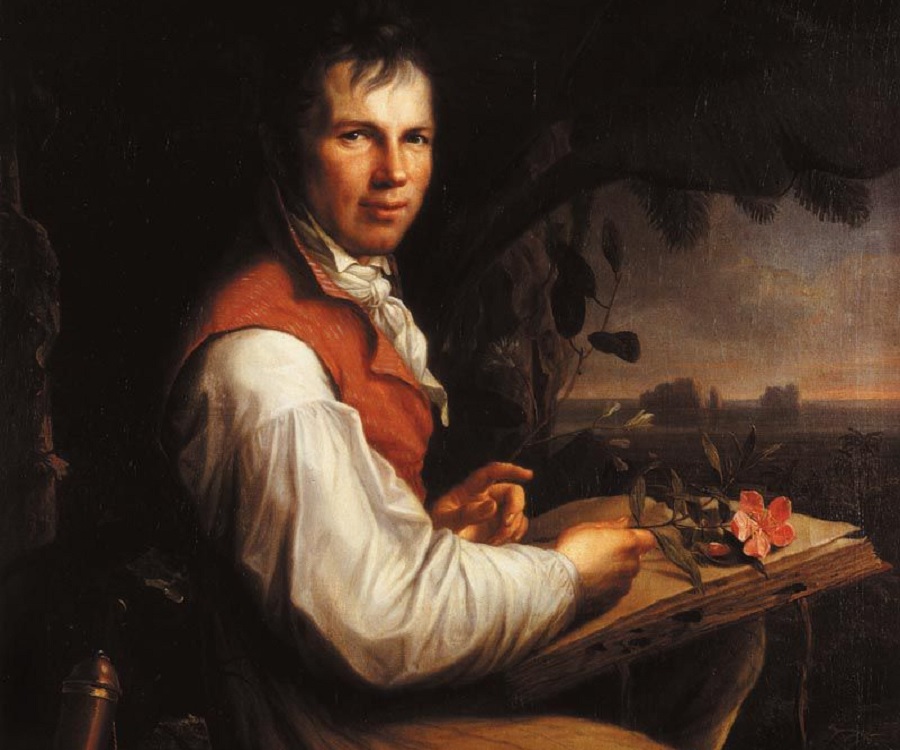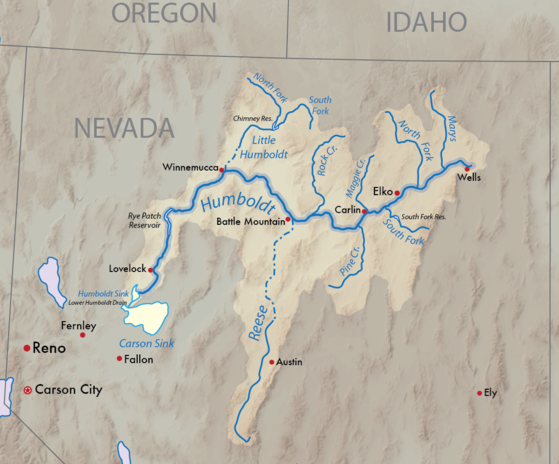
In the late 1800s, Prussian scientist Alexander von Humboldt was the most celebrated scientist in the world. He introduced the concepts of ecology, climate change, environmental degradation, and environmental justice to the world in the 1800s. And he inspired the likes of Charles Darwin, Johann von Goethe, Henry David Thoreau, and John Muir. He is the namesake of a dozens of places across Nevada and the West, yet he never visited this region. Hundreds of places and species around the world carry his name. That's how much people liked him in the 19th and early 20th centuries.
Learn about Humboldt’s work and apply the wisdom of his perspective to our modern environmental challenges. Join the Humboldt Section of the Toiyabe Chapter, organized to promote the important legacy of Alexander von Humboldt, while supporting the goals of the Toiyabe Chapter.
For more information, contact David von Seggern (vonseg1(at)sbcglobal.net; 775-303-8461).
Quick facts on Alexander von Humboldt
born 1769; died 1859 — German scientist, adulated in his own era, friends with many prominent people of the Enlightenment, including Simon de Bolivar, Johann Wolfgang Goethe, Freidrich Schilling, Thomas Jefferson, James Madison, Charles Lyell, Carl Freidrich Gauss, etc. He was enormously influential with Charles Darwin, Henry David Thoreau, and John Muir. He did visit the US, but only traveled in the eastern states. He is often credited with starting the field of ecology.

The Humboldt River was named by John Fremont in 1848, after it had already gone through several name changes. He used the name on a detailed map of the region.
Many additional place names in California and all over the world are named after Humboldt.
Perhaps the most widely recognized scientific phenomenon named after him is the Humboldt Current of the North Atlantic.
Most recent biography:
The Invention of Nature: Alexander von Humboldt’s New World, by Andrea Wulf, 2015.
Geographic Place Names in Nevada with “Humboldt”:
Humboldt County
Humboldt River
Humboldt Range
East Humboldt Range
Humboldt Peak
Humboldt Sink
Lake Humboldt
Humboldt Salt Marsh
Humboldt Wildlife Management Area
Humboldt-Toiyabe National Forest
From the Wikipedia page (https://en.wikipedia.org/wiki/Alexander_von_Humboldt), a discussion about the decline in Humboldt’s renown:
“Scholars have speculated about the reasons for Humboldt's declining renown among the public. Sandra Nichols has argued that there are three reasons for this. First, a trend towards specialization in scholarship. Humboldt was a generalist who connected many disciplines in his work. Today, academics have become more and more focused on narrow fields of work.
Humboldt combined ecology, geography and even social sciences. Second, a change in writing style. Humboldt's works, which were considered essential to a library in 1869, had flowery prose that fell out of fashion. One critic said they had a "laborious picturesqueness". Humboldt himself said that, "If I only knew how to describe adequately how and what I felt, I might, after this long journey of mine, really be able to give happiness to people. The disjointed life I lead makes me hardly certain of my way of writing". Third, a rising anti-German sentiment in the late 1800s and the early 1900s due to heavy German immigration to the United States and later World War I.
On the eve of the 1959 hundredth anniversary of the death of Humboldt, the government of West Germany panned significant celebrations in conjunction with nations that Humboldt visited.